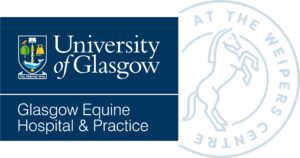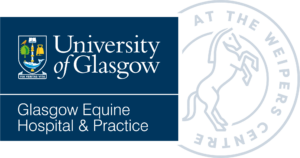Modern Equine Dentistry – More than just a rasp
When we think about equine dentistry, many people still imagine a quick file and polish—just enough to “take the sharp edges off.” But the truth is, modern equine dentistry goes far beyond that. At Glasgow Equine Practice, we see dental care as one of the most important parts of keeping horses healthy, happy, and pain-free.
Why Dental Care Matters More Than You Might Think
Horses don’t show pain in obvious ways. They can’t tell us when something feels wrong—and often, they don’t show signs of discomfort until a problem has been going on for a while.
We’ve seen horses with:
Sharp enamel points cutting into the cheek or tongue
Fractured teeth or cavities causing low-grade pain
Food packing in early stages of gum disease
And even tooth root infections that only showed up on an x-ray
Sometimes these horses continue to eat, work, and behave normally—until suddenly they don’t.
What We Can Do Today: Advanced Equine Dental Services
Thanks to modern equipment and experience, we’re able to offer more than just rasping. We now routinely perform:
✅ Detailed Dental Examinations
We start with a visual and manual check, often using dental mirrors. If we suspect something more subtle, we can use a dental endoscope—a camera system that gives a crystal-clear view of each tooth.
✅ Precision Rasping
Correcting hooks, ramps, waves and imbalances—without overfloating. This helps horses chew more effectively and accept the bit more comfortably.
✅ Fillings and Restorations
Yes—horses can get dental decay, especially in their upper molars. If we catch it early, we can clean and fill the cavity to stop it from worsening.
✅ Tooth Extractions
When a tooth is fractured or infected, we may recommend extraction under standing sedation. It’s safe, minimally invasive, and often brings immediate relief.
✅ Radiography and Referral Support
Some cases need x-rays or CT imaging—particularly sinus or root infections. We coordinate with the Glasgow Equine Hospital team when advanced care is needed.
A Case in Point: What We Found Recently
One new horse recently came to us for a “routine check.” The owner wanted a clear picture of what was going on.
With the scope, we found:
Sharp points causing ulcers on the cheeks
Food packing in gaps likely caused by delayed rasping
No gum disease yet—but it would’ve progressed without care
After precise rasping, the horse is now eating more comfortably, gaining condition, and happier under saddle.
Why It Matters: The Details Make the Difference
Equine dentistry isn’t just about floating teeth. It’s about:
Spotting subtle problems early
Treating issues before they become painful or expensive
Helping horses live more comfortably
Giving owners peace of mind
Want to Know More?
We’re proud to offer comprehensive equine dental care at your yard—with advanced tools, experienced vets, and a deep commitment to horse welfare.
📍 Based near Glasgow | 🦷 Referrals welcome | 📩 Message us to book
Frequently Asked Questions: Equine Dental Care
❓ How often should my horse have a dental check-up?
Answer: Most horses should have a dental exam every 6 to 12 months, depending on age, diet, and previous dental history. Regular checks help catch issues like sharp points, tooth wear, or early gum disease before they become serious.
❓ What is the difference between floating and modern equine dentistry?
Answer: Floating refers to filing sharp edges off the teeth. Modern equine dentistry involves a much more detailed approach, including balancing the bite, checking for decay, assessing tooth alignment, and using tools like mirrors, endoscopes, and x-rays to identify hidden issues.
❓ Is a dental scope always necessary?
Answer: Not always. We use dental mirrors for most routine checks. But when we want a closer look—or when the owner wants to see what we see—we use a dental endoscope. It provides a detailed, magnified view of the teeth and any problems that aren’t visible otherwise.
❓ Can horses get tooth decay or need fillings?
Answer: Yes. Horses can develop infundibular caries (tooth decay) and sometimes benefit from restorative treatmentslike fillings. If caught early, we can clean the cavity and seal it to prevent progression.
❓ What are the signs my horse might have dental pain?
Answer: Common signs include dropping food, resisting the bit, weight loss, head shaking, bad breath, or nasal discharge. But many horses hide discomfort well—which is why regular exams are important. For more information: BHS Horse Teeth and Equine Dentistry
❓ Is sedation safe for dental work?
Answer: Yes. We use standing sedation that is carefully dosed for each horse. It keeps the procedure safe, reduces stress, and allows us to do a thorough and comfortable examination.
❓ What if my horse needs a tooth extracted?
Answer: We can perform standing extractions for most cases. These are done under sedation, with local anaesthetic, and horses typically recover quickly. We also offer referral support if advanced imaging or surgical intervention is needed.
❓ Can I book this at my yard?
Answer: Absolutely. Our equine dental services—including endoscopy and extractions—are available as part of our mobile veterinary care across Glasgow and surrounding areas. We also accept referrals from other vets.


